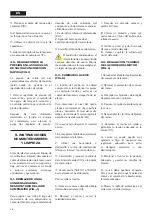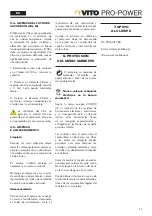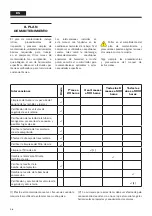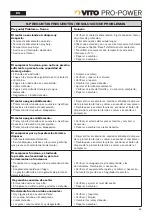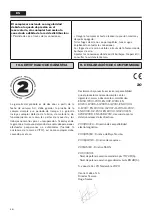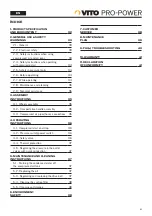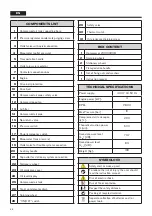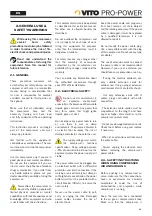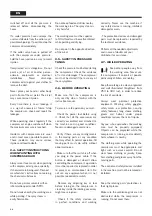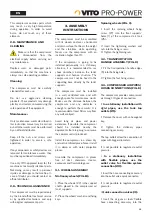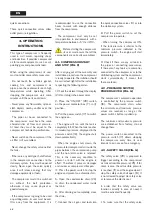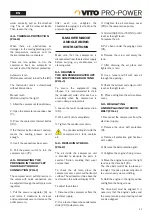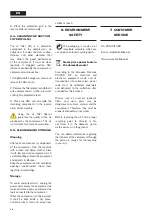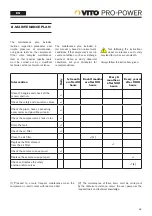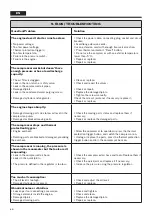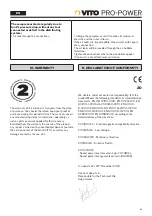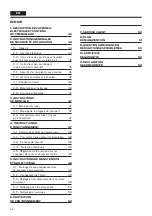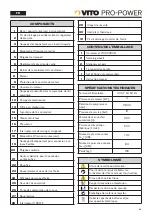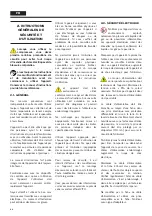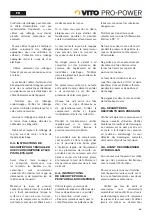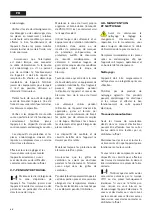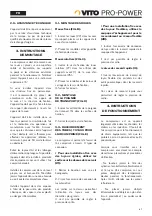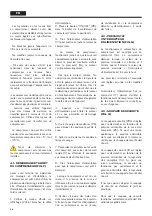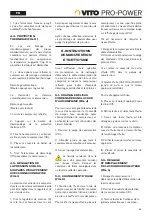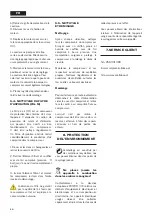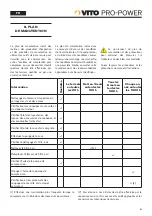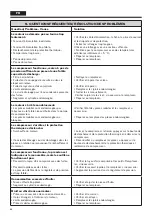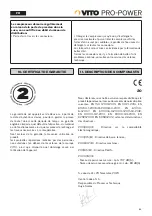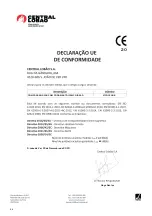
40
EN
9. FAQS / TROUBLESHOOTING
Question/Problem
Solution
The engine doesn’t start or runs too slow:
• No power voltage;
• Too low power voltage;
• Thermal protection triggers;
• Too low temperature;
• Failure in the pressure switch;
• Failure in the engine;
• Check the power cable, connecting plug, socket and circuit
breaker;
• Avoid long extension cords;
Use an extension cord with enough transversal section;
• Press thermal contactor’s “Reset” button;
• Do not use the compressor with an exterior temperature
lower than +5°C;
• Repair or replace;
• Repair or replace;
The compressor works but doesn’t have
enough pressure or has a low discharge
capacity:
• The air filter is clogged;
• Leak in the non-return or safety valve;
• Leak in the compressed air pipes;
• Damaged joints;
• Leak in the condensed water purging screw;
• Damaged cylinder and segments;
• Clean or replace;
• Check and repair the valves;
• Check or repair;
• Replace the damaged joints;
• Tighten the screw manually;
Check the screw’s joint and, if necessary, replace it;
• Repair or replace;
The engine stops abruptly:
• Damaged moving parts due to low oil level in the
compression pump;
• Damaged or blocked moving parts;
• Check the moving parts status and replace them if
necessary;
• Repair or replace the damaged parts;
The compressor stops and thermal
protection triggers:
• Engine overheat;
• Rotating parts are blocked or damaged, provoking
the overheat;
• Allow the compressor to cool down, press the thermal
protection trigger button and switch the compressor on;
• Unclog or replace the parts, press the thermal protection
trigger button and turn the compressor back on;
The compressor is running, the pressure is
shown in the manometer but the tools aren’t
responding:
• Leak in the compressed air hose;
• Leaks in the quick joints;
• The pressure defined in the regulator is too low;
• Check the compressed air hose and tools. Replace them if
necessary;
• Check the quick joint and replace it if necessary;
• Increase the pressure using the pressure regulator;
Too much oil consumption:
• The oil level is too high;
• Damaged cylinder or segment;
• Check and adjust the oil level;
• Repair or replace;
Abnormal noise or vibration:
• Loosen parts or connecting accessories;
• Strange elements inside the engine;
• Damaged joints;
• Damaged moving parts;
• Check and tighten;
• Check and clean;
• Replace the damaged joints;
• Repair or replace;
Summary of Contents for Pro-Power VICOC300B
Page 4: ...4 Fig E Fig D Fig F 3 8 4 5 7 1 3 4 1 2 2 1 2 28...
Page 5: ...5 Fig G Fig H Fig I Fig J Fig K 30 2 2 1 1 3 4 6 16 29 11 STOP 1 1 31...
Page 6: ...6 Fig M Fig L 1 1 2 2 a 2 b 3 4 4...
Page 55: ...55...
Page 56: ...RUA DA G NDARA 664 4520 606 S JO O DE VER STA MARIA DA FEIRA PORTUGAL MI_VICOC300B_REV00_NOV20...

